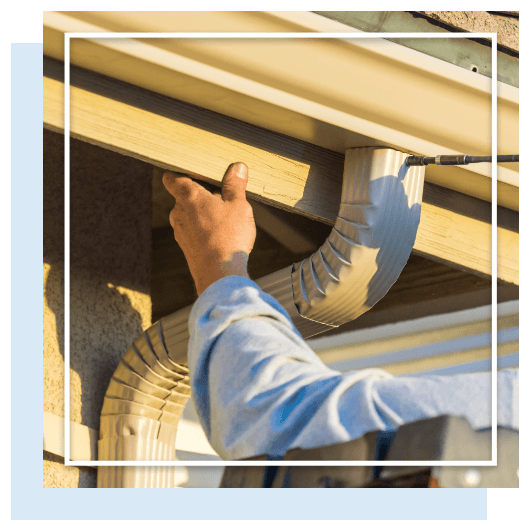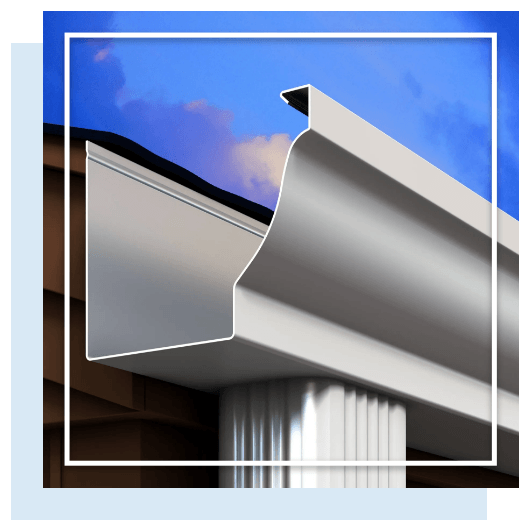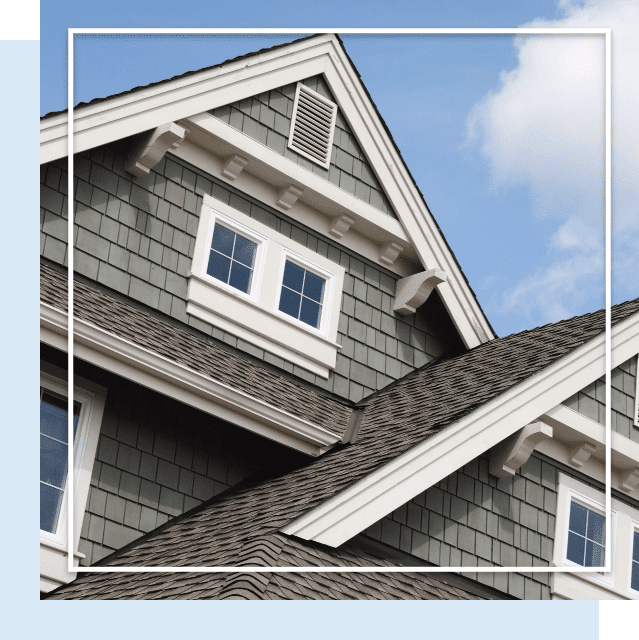Gutters are an indispensable component of home maintenance, serving a critical function in protecting properties from the pervasive threats of water damage. They channel rainwater and melting snow away from a home’s foundation and structural elements, safeguarding against the potentially ruinous effects of unchecked water flow. The choice of gutters assumes added significance given the diverse weather patterns encountered across different regions, necessitating a thoughtful selection that aligns with local climatic conditions. This is particularly true in areas subjected to a wide range of weather phenomena, from heavy snowfall to intense rainstorms, where the functionality and durability of gutter systems are put to the test. Understanding the various types of gutters and their compatibility with specific weather challenges is paramount for homeowners aiming to ensure their property remains protected throughout the year.
Understanding Gutter Basics
Gutters are a fundamental aspect of home maintenance, designed to perform a critical yet often underappreciated role in preserving a property’s integrity and maximizing gutter lifespan. Their primary function is to collect and divert rainwater and melting snow away from the home’s foundation, walls, and landscaping. This not only prevents water from seeping into basements and crawl spaces but also protects the soil around the home from erosion, which could otherwise undermine the structural stability of the building. Additionally, by preventing water from cascading down the sides of a house, gutters help to maintain the exterior surfaces of a home, including windows, doors, and siding, reducing the need for frequent repairs and repainting. The importance of gutters extends beyond functional benefits to include the prevention of mold and mildew growth, which can pose health risks to occupants. In essence, gutters are a vital component in the overall health of a home, ensuring that it remains dry, safe, and aesthetically pleasing.

Why Gutter Type Matters
The type of gutter installed on a home can significantly impact its exterior appearance, water management efficiency, and overall aesthetic appeal. Different materials and designs offer varying levels of durability, maintenance requirements, and compatibility with specific architectural styles. For example, aluminum gutters are lightweight, rust-resistant, and available in a wide range of colors, making them a versatile option for many homes. Copper gutters, on the other hand, offer a distinctive look that can enhance the elegance of a property, aging gracefully over time to develop a unique patina. The choice between sectional and seamless gutters affects not only the appearance of a home but also its susceptibility to leaks, with seamless gutters providing a sleek, uniform look and reduced leak points. Moreover, the size and shape of gutters, from traditional half-round to contemporary K-style, can influence their capacity to handle heavy rainfall and complement the home’s architectural design. In regions with specific weather challenges, such as heavy snowfall or intense rainstorms, selecting a gutter system that can effectively manage high volumes of water while withstanding the elements is crucial.
Types of Gutters Available in Connecticut
Connecticut homeowners have a variety of gutter options to choose from, each with its own set of advantages tailored to meet the state’s unique weather patterns and aesthetic preferences. Understanding the features, benefits, and potential drawbacks of each type is essential for making an informed decision.
Aluminum Gutters
Aluminum gutters are among the most popular choices for homeowners due to their combination of durability, lightweight nature, and ease of installation. They resist rust, which is crucial in the wet climate of Connecticut, and can handle the weight of snow and ice relatively well. Additionally, aluminum gutters come in a wide range of colors, making it easy to find an option that complements the exterior of your home. Their affordability and long lifespan add to their appeal, making them a versatile option for many properties.
Copper Gutters
Copper gutters stand out for their exceptional longevity, aesthetic appeal, and natural resistance to corrosion. They are a premium choice that adds a touch of elegance to any home, gradually developing a beautiful patina over time. While copper gutters come with a higher initial cost, their durability and low maintenance requirements can make them a cost-effective option in the long term. They are particularly suited to historic or high-end homes where appearance and longevity are paramount.
Steel Gutters
Steel gutters are known for their strength and durability, making them an excellent choice for handling the heavy snowfall and ice common in Connecticut winters, a crucial aspect highlighted in The Gutter Guide: Winter Weather and Your Home’s Defense. Galvanized steel gutters are coated with a layer of zinc to help prevent rust, although they may still require more maintenance to avoid corrosion over time. Stainless steel options, though more expensive, do not rust and can offer a sleek look to a home’s exterior. Their robust construction ensures they can withstand severe weather conditions without sagging or breaking, embodying the principles outlined in the guide for selecting gutters that effectively protect against winter’s challenges.
Vinyl Gutters
Vinyl gutters are favored for their cost-effectiveness, ease of installation, and variety of colors. They are made from a lightweight plastic that is impervious to rust and corrosion, making them a maintenance-free option for many homeowners. However, vinyl gutters may become brittle and crack in extreme cold or fade in direct sunlight, so they may not be the best choice for every home in Connecticut, especially in areas with significant temperature fluctuations.
Seamless Gutters
Seamless gutters offer a solution to many of the common problems associated with sectional gutters, such as leaks and blockages at the joints. Manufactured from a single piece of material, usually aluminum, seamless gutters are custom-fitted to your home, providing a neat, streamlined appearance. Their lack of seams minimizes the chances of leaks, making them a highly efficient and aesthetically pleasing option.
Sectional vs. Seamless Gutters
When comparing sectional to seamless gutters, the main differences lie in their construction and performance. Sectional gutters are made from pre-cut pieces that are joined together, which can lead to leaks at the seams over time. They are generally more affordable and easier to install, making them a popular choice for DIY enthusiasts. Seamless gutters, while more expensive, offer a higher level of protection against leaks due to their continuous construction. They require professional installation but provide a cleaner look and lower maintenance requirements. Homeowners must weigh the initial investment against the long-term benefits to decide which option best suits their needs and budget.

Installation and Maintenance
Ensuring your gutters are correctly installed and well-maintained is key to maximizing their effectiveness and lifespan. This section explores the advantages of professional installation over DIY projects and offers practical tips for regular gutter maintenance.
Professional Installation vs. DIY
- Professional Installation Benefits:
-
- Expert Assessment: Professionals can accurately assess your home’s specific needs, considering factors like roof size, pitch, and the local climate to recommend the best gutter system. They ensure that gutters are sized and positioned correctly to handle water flow efficiently.
- Safety: Installing gutters involves working at heights and requires proper safety equipment and expertise. Professionals are trained to work safely and efficiently, reducing the risk of injury.
- Quality Assurance: A professional installation comes with the benefit of experience and attention to detail, ensuring that the gutters are securely attached, sealed, and aligned correctly to prevent future problems.
- Warranty and Peace of Mind: Many professional installations come with a warranty for both materials and labor, offering homeowners peace of mind knowing that any future issues will be addressed without additional costs.
- DIY Considerations: While a DIY approach may seem cost-effective, it carries risks of improper installation, potential injuries, and long-term issues that could result in costly repairs. The lack of professional assessment can also lead to selecting the wrong type or size of gutters for your home.
Maintenance Tips
Regular maintenance is crucial to keeping your gutter system functioning properly and extending its lifespan. A common question homeowners have is, How often should you clean your gutters? This is essential to prevent issues like blockages and leaks, ensuring the gutters can effectively manage water flow away from your home. Here are some essential tips:
- Regular Cleaning: Clean your gutters at least twice a year, in the spring and fall, to remove debris such as leaves, twigs, and dirt that can cause blockages. This is particularly important in Connecticut, where falling leaves and heavy snow can quickly fill gutters.
- Inspect for Damage: Periodically inspect your gutters for signs of wear, such as cracks, holes, or rust. Also, check for any sections that are sagging or pulling away from the house and ensure that all downspouts are free from obstructions.
- Seal Leaks: Use a gutter sealant to fix any small leaks in the gutter seams. For larger issues, consider calling a professional to ensure a durable repair.
- Install Gutter Guards: Gutter guards can significantly reduce the amount of debris that enters your gutters, minimizing cleaning needs and preventing clogs. They are especially useful in wooded areas.
- Ensure Proper Drainage: Check that the ground around your downspouts drains properly, directing water away from the foundation. Add downspout extensions if necessary.
Enhancing Your Home’s Durability with the Right Gutters
The installation of a high-quality gutter system is not just about diverting water away from your home—it’s an investment in the property’s long-term durability and value. Understanding the protective benefits and value-enhancing aspects of the right gutter system can guide homeowners in making informed decisions.
Impact of Quality Gutters on Home Value
- Structural Protection: Quality gutters play a pivotal role in protecting the structural integrity of a home. By efficiently channeling water away from the foundation and exterior walls. They prevent the potential for water damage that can compromise the structure. This level of protection is a key selling point that can appeal to prospective buyers. Showcasing the homeowner’s commitment to maintaining the property.
- Aesthetic Appeal: Gutters that complement the architectural style of a home can enhance its curb appeal. Whether it’s the sleek appearance of seamless gutters or the classic charm of copper, the right choice can add a visually appealing element to the property. A well-maintained exterior, free from water stains or damage, can significantly increase a home’s attractiveness on the market.
- Reduced Maintenance Costs: A high-quality gutter system that is resistant to clogging and easy to maintain can be a valuable feature for potential buyers. It suggests lower future maintenance costs and less hassle, which can be a strong incentive for someone looking to purchase a new home.
- Increased Property Value: Ultimately, the combination of enhanced curb appeal, reduced maintenance needs, and superior structural protection can contribute to an increase in the home’s overall value. Homeowners who invest in quality gutter systems may see a favorable return on investment when it comes time to sell.
Preventing Water Damage
- Basement Flooding: Efficient gutters and properly positioned downspouts are crucial in preventing water from pooling around the foundation and seeping into the basement. This can mitigate the risk of flooding, mold growth, and water damage to interior spaces, which are costly and challenging issues to resolve.
- Soil Erosion: By directing water away from the home, gutters help preserve the landscaping and soil around the foundation. This prevents erosion, which can lead to uneven settling and, eventually, structural issues that jeopardize the home’s stability and safety.
- Foundation Damage: Prolonged exposure to water can weaken a home’s foundation, causing cracks, settling, and other serious structural problems. A robust gutter system minimizes water saturation around the foundation, maintaining the strength and integrity of the base upon which the entire home rests.
Final Thoughts
Homeowners are advised to meticulously assess their gutter system options and engage with professional services for installation and ongoing maintenance. CMW Roofing & Siding, a trusted roofing company based in Monroe, CT, exemplifies the expert involvement necessary to ensure the home is outfitted with an optimal water management solution, effectively safeguarded throughout the year. Opting for the right gutters and enlisting professional support from a company like CMW Roofing & Siding not only protects the property from potential water damage but also boosts its aesthetic appeal and may enhance its overall value, preserving the homeowner’s investment for years to come.
